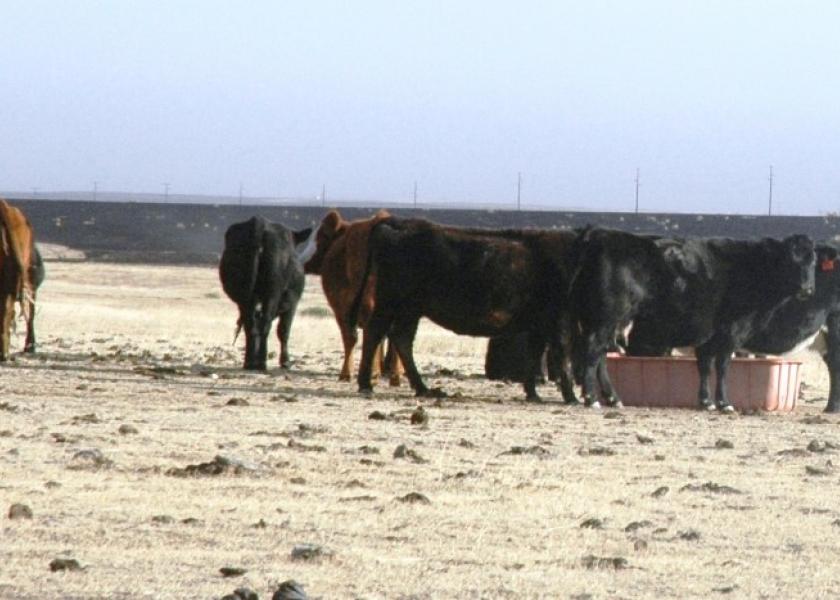Wildfires Leave More than Ashes Behind

By Kay Ledbetter, Texas AgriLife Extension Service
Across the state of Texas, it’s the same story over and over – the grass is gone, destroyed by fire, hay is short and soil moisture is almost non-existent.
Some tough decisions lie ahead for ranchers caught in the wake of the recent fast-moving wildfires, a Texas AgriLife Extension Service specialist said.
“Something that is important, after they get through the emotional part of this, is looking at the long-term,” said Dr. Ted McCollum, AgriLife Extension livestock specialist. “With current conditions, if we don’t get significant rain in the next several weeks, those rangelands that burned aren’t going to be able to carry many cattle, if any, until next fall. And then, grazing will be limited.”
Ranchers planning to feed cattle after the fires need to consider that, because of the drought in other parts of the state, hay supplies are going to be short, McCollum said. Hay will probably have to come from some other region.
Ranchers opting to continue feeding their animals have several options, he said.
Low-quality hay, or another roughage source such as cotton burrs, can be supplemented with concentrated nutrients to balance out what the cattle need, McCollum said.
The other option may be to get away from the traditional thinking of feeding hay and feed a more concentrated diet, he said. Less total pounds of feed would be required, but this option may present some problems with handling and delivering of feed.
The other option that some might have to look at is selling the cattle, he said.
“Look at de-stocking partially or fully,” McCollum said. “The net loss or net gain of selling out now and buying back later may be relatively the same as trying to figure out how to feed those cows for several months.
“Immediate selling may be a necessary move for cattle that have been injured by the fire. Any cattle that have suffered heating of the feet, blistering of the udder, excessive smoke inhalation and other insults should be marketed before the injuries progress to the point that the cattle are unmerchantable.”
The potential for pasture recovery is another factor to consider when keeping cattle.
The timing and the rate at which the fires moved may mean the damage to the plant community might not be as bad as some think it is, he said, but the problem is soil moisture. The recovery of those areas is going to be slow.
“If we get any rainfall in the next month or so, the recovery may be better than people think it is,” McCollum said. “The key factor – can we get any timely rainfall?”
But regardless of whether the rain comes, the carrying capacity is going to be lower than normal. Ranchers may face stocking at less than half of the normal rates, he said.
The primary grasses need to accumulate some forage and have adequate soil moisture to continue growth before any grazing should be considered, McCollum said. Without moisture, it may be next fall, after forage goes dormant, before any animals can be put on the pasture.
Buying hay or finding pasture now is a temporary stop-gap management measure, he said. Without rain, purchasing hay and feed is simply delaying some decisions.
“I know it is hard to do, but they need to be thinking about contingencies one, three and six months down the road,” McCollum said.







